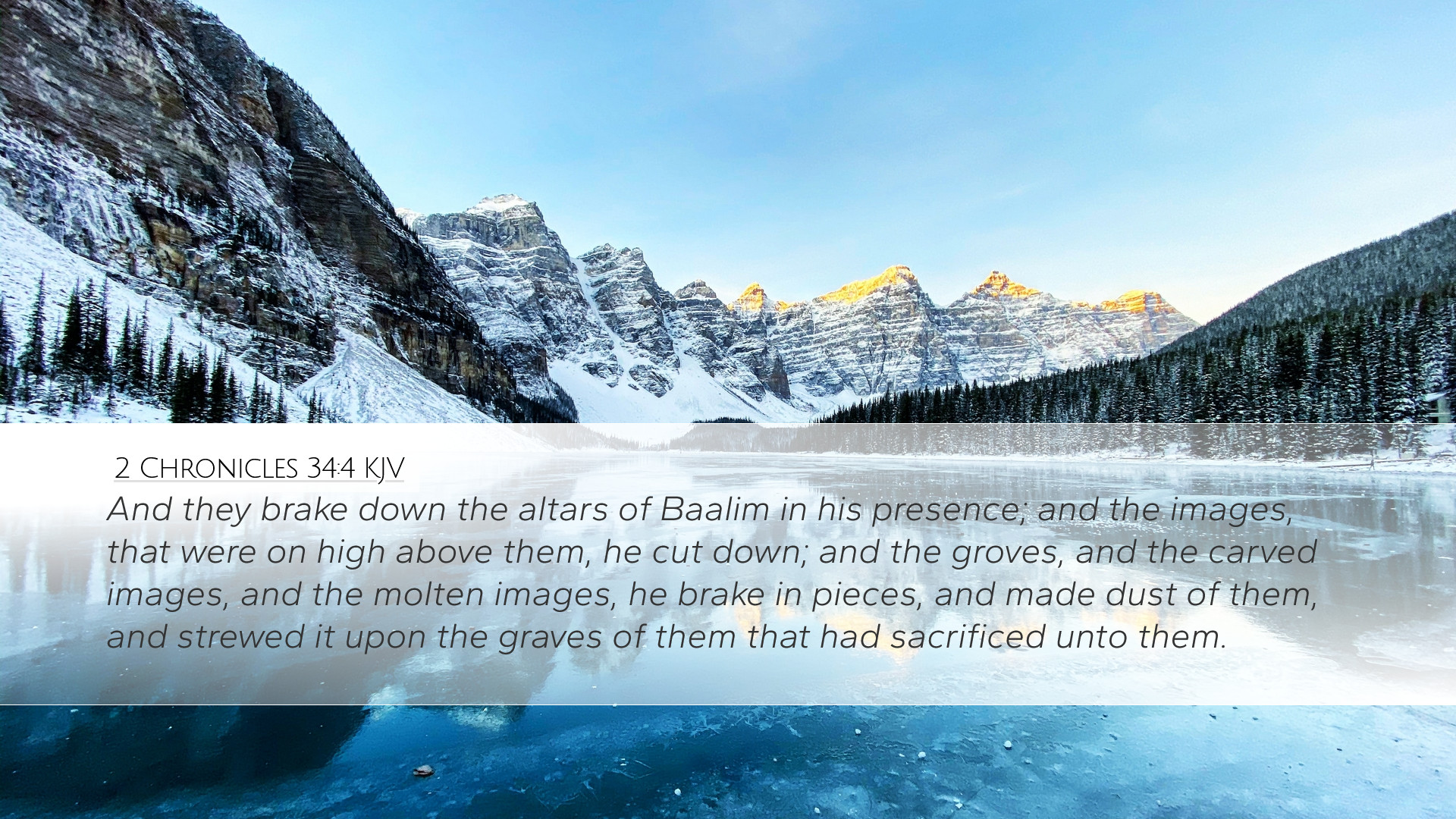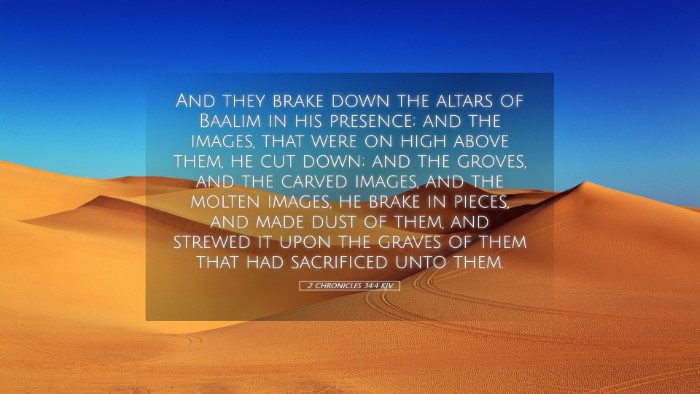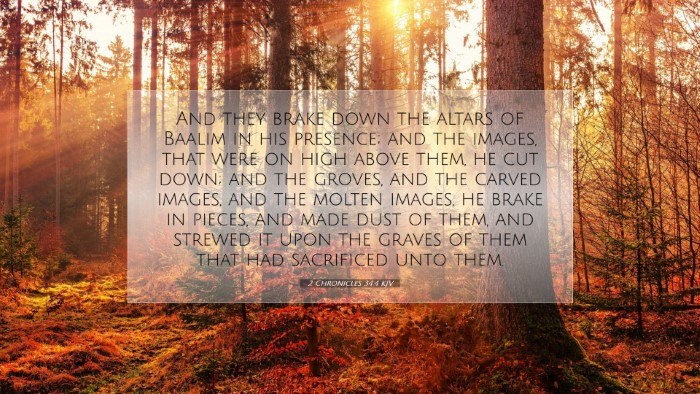Commentary on 2 Chronicles 34:4
Verse: 2 Chronicles 34:4 - "And they brake down the altars of Baalim in his presence; and the images that were on high above them he cut down; and the groves, and the carved images, and the molten images he brake in pieces, and made dust of them, and strode over them."
Introduction
This verse encapsulates a significant moment in the reign of King Josiah, a central figure in the narrative of Judah’s restoration and reform. At a time when idol worship had infested the nation, Josiah's actions represented a decisive move toward purifying the worship practices of Israel.
Historical Context
The historical backdrop of this passage is critical. Josiah became king at a young age and was noted for his desire to return Judah to the worship of Yahweh. The idolatrous practices instituting Baal and Asherah worship had led the nation into a dark spiritual decline. His actions, as illustrated in this verse, showcase a radical reformative zeal aimed at eradicating idolatry.
Matthew Henry's Perspective
Matthew Henry emphasizes the boldness and determination of Josiah in his reform efforts. Henry notes that breaking down the altars and idols was not merely a physical act; it symbolized the overturning of the spiritual corruption that had infiltrated Israel. He highlights that Josiah did this "in his presence," which underscores the king's personal involvement in this significant act of devotion to God.
Albert Barnes' Analysis
Albert Barnes provides a contextual analysis of the altars of Baalim and their cultural significance. He explains that these altars represented foreign influences and the syncretism that plagued Israel's worship. Josiah's actions serve as a powerful message that God demanded exclusive allegiance, and Barnes articulates that the destruction of these idols was fundamental to restoring true worship.
Adam Clarke's Insights
Adam Clarke dives deeper into the geographical and political implications of Josiah's reform. He notes that the cutting down of the high places was not just a local endeavor but a nationwide campaign against idolatry. Clarke provides cultural context regarding the “groves” and “carved images” and how they symbolized the pervasive nature of idolatry that had gripped the nation.
Theological Implications
The actions depicted in 2 Chronicles 34:4 reveal key theological principles that resonate with contemporary readers. The rigorous dismantling of idolatrous practices illustrates God's passionate desire for His people's undivided loyalty. This moment in Israel’s history serves as a reminder of the spiritual warfare believers face against any form of idolatry, whether it be physical images, cultural influences, or personal sins that supplant God’s rightful place in their lives.
Idolatry Today
- Definition of Idolatry: Idolatry transcends mere physical idols and can encompass anything that takes precedence over God.
- Call to Purity: Contemporary believers are called to examine their lives and dismantle anything that impedes their relationship with God.
- Community Responsibility: Like Josiah, we have a communal responsibility to confront and eradicate influences that lead others astray.
Practical Applications
For pastors, students, and theologians, the call to action is clear. The narrative invites self-reflection and a commitment to maintaining a pure worship environment both personally and corporately. It challenges leaders to assess their communities and identify areas that require reform and realignment with God’s teachings.
Steps for Reform
- Identification: Recognize any modern-day altars in your life or ministry settings.
- Education: Teach the truth of Scripture that reinforces the need for purity in worship.
- Action: Be prepared to take decisive steps, even those that may be uncomfortable, to align once more with God’s commands.
Conclusion
2 Chronicles 34:4 is more than a historical account; it is a vibrant call to action for believers across generations. By revisiting the transformative actions of King Josiah, we are urged to examine our own allegiances and remove anything that distracts us from the worship of God alone. Guided by insights from esteemed commentators, we are equipped to foster an environment of holiness and purity, essential for a thriving faith community.


